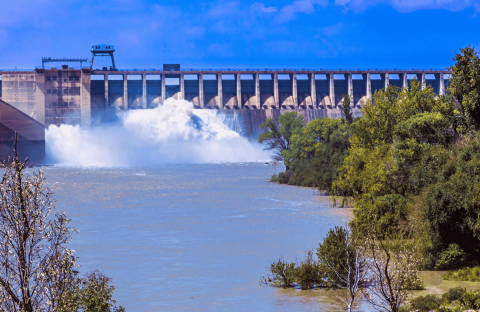
Why energy resilience is the new competitive advantage for local businesses
Why energy resilience is the new competitive advantage for local businesses
Why energy resilience is the new competitive advantage for local businesses
Why energy resilience is the new competitive advantage for local businesses
For South African businesses, the energy crisis is no longer a background irritation—it’s now one of the biggest financial risks on the balance sheet. Every hour without power chips away at productivity, predictability, and ultimately, profit. Add to that the relentless rise in tariffs and mounting pressure for carbon accountability, and it’s clear: energy resilience has become synonymous with business competitiveness.
This is the environment in which EPC (Engineering, Procurement, and Construction) renewable solutions have moved from nice-to-have to non-negotiable. Companies are no longer just installing solar panels—they’re redesigning how they power their operations to safeguard profitability in the long term.
“There are two certainties in South Africa’s energy landscape,” says Jaco Weideman, Business Manager at Rentech Renewable Energy speaking on #HOTBusiness with Jeremy Maggs.
“It’s expensive—and it’s unpredictable.” And for CEOs, CFOs, and operations leaders, unpredictability is the enemy of growth.
Why EPC matters now
Rentech’s EPC model offers full turnkey delivery—from system design to supply, installation, compliance, commissioning, and ongoing maintenance. But what makes it commercially powerful is the precision engineering behind each system.

There is no such thing as a one-size-fits-all solar solution.
Every business has different loads, demand profiles, and operational patterns. An under-designed system fails to reduce costs meaningfully; an over-designed one destroys return on investment. Rentech’s approach focuses on accuracy, scalability, and adaptability—designing systems that grow with the business and deliver measurable performance over time.
Listen to the full interview on HOT Business with Jeremy Maggs below:
Clearly, the ROI conversation has changed
With average electricity increases sitting around 12% annually, Weideman notes that many businesses are seeing payback periods as low as three years—sometimes less in high-load environments like manufacturing, agriculture, and commercial property. Even SMEs now find solar financially compelling, purely because of the cost trajectory of grid electricity.
There’s also a sustainability dividend. Companies pursuing ESG goals or carbon-reduction strategies benefit from cleaner energy without sacrificing profitability. As Weideman puts it: “It’s not about going green for the sake of it. If you cut your reliance on the grid, you save money—and reduce your carbon footprint at the same time.”
What Comes Next
The next evolution will be AI-enabled systems, smarter equipment monitoring, and even greater emphasis on energy independence and contract-backed performance guarantees. For leaders planning the next three to seven years of business growth, energy strategy is no longer optional—it’s foundational.

More Posts for Show: HOT Business with Jeremy Maggs









